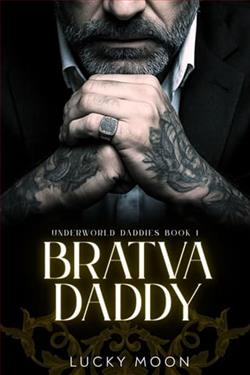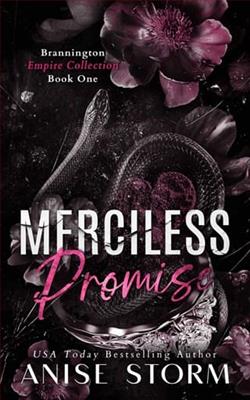Page 40 of Audacity
I study her. I’ve had this conversation more times than I can count, of course, mainly with parishioners who’ve felt lost or doubtful or even deceived, but periodically with fellow clerics, shooting the theological breeze over beers on our nights off.
‘What makes something deserving of our faith?’ I ask her quietly.
‘Well, believability, for a start. I have a theory that organised religion was made complex for a reason. It was world building on the scale of epic fantasy, if you like. Tolkien had nothing on the Old Testament. And I understand that it served a critical role—not just the church as an instrument of the state, as mass crowd control—but to give people purpose and meaning and comfort.
‘But we’re not wretched, terrified peasants now. We’re highly educated, sophisticated beings with far more agency over our own existence, so for the love of God, why would we still choose to believe all that?’
Her argument doesn’t offend me. Not in the slightest. And I have no intention of going on the defensive. The bottom line is that we are both perfectly entitled to our views, no matter how obtuse we may deem each other for not sharing those views.
‘One of the gifts of having a soul as well as a brain,’ I begin, ’is the ability to believe in things we cannot see or prove. Like gravity.’
She groans. ‘If you tell me you’re a gravity denier, I’m getting up and leaving right now.’
‘Of course I’m not a gravity denier! And I don’t believe God created the world in seven days either, if that makes you feel better. But I do believe that this universe of ours, that operates in such perfect homeostasis despite its complexity, can only be the creation of a benign God, and everything else I believe stems from that.’
‘You sound like a humanist,’ she says, picking up her spoon and dipping it into the amber-coloured liquid.
‘I believe in very many things that humanists don’t. I believe that Christ rose from the dead to grant us eternal life, and I believe that every time I stood on that altar, I had the unutterable privilege of transforming bread and wine into His flesh and blood.
‘But, perhaps most importantly, I believe that God’s grace is the most precious gift He can give us. To be imperfect and know that you are still worthy of love… to receive love so great, knowing you absolutely haven’t earned it nor can never, ever earn it? That, for me, is probably the most beautiful and mystical thing about this faith of mine.’
She stares at me, spoon suspended. It’s as if I’ve knocked the wind out of her sails.
‘The Stoics would have said that was a lazy argument,’ she counters eventually, but she doesn’t sound as though her heart is in it. ‘Giving up on being the best version of yourself because you’ll be loved anyway? What a cop out.’
‘Ah, yes. The Classics scholar speaks.’
‘At least they didn’t need the carrot of heaven or the threat of hell dangled over their heads to be good people. They believed in self-improvement for its own sake. And self-sufficiency.’
‘St Augustine was a bit of a Stoic, now you mention it,’ I muse. ‘Before his conversion, I mean. “Lord, make me chaste, but not yet.”’
She laughs, looking delighted. ‘Did you just make a sex joke about St Augustine? That prayer could be a good one for you, come to think of it. You might want to hold onto that. But honestly, they’re worlds apart.’
‘Not really,’ I press. ‘There are a lot more parallels than you’d think. Yes, we have miracles and divine grace, but you could argue that both philosophies carry a mutual respect. Stoics and Catholics alike are urged to examine their conscience on a daily basis. Our cardinal virtues are definitely rooted in Stoicism. And—my trump card—both are massive on suffering.’
She throws her head back and laughs, and it’s a truly privileged sight to see her beauty animated through mirth.
‘Okay, okay,’ she says, reaching for the bread basket. ‘So Catholicism is Stoicism with miracles. Got it.’
‘And grace. And redemption. Don’t forget those.’
As we continue with our meal, Athena excoriates me for the way the Church has bastardised Classical Latin over the ages. I counter fiercely with what I believe to be an intellectually robust defence: namely that in the aftermath of the Roman Empire blowing itself up, Church Latin has been responsible for keeping this most solemn and noble of languages alive to this day, albeit with a healthy dose of creative licence.
She doesn’t buy it.
It only strikes me after we’ve returned to the office that my soul is feeling as replete as my belly.
CHAPTER 18
Athena
The next afternoon, I swing by George’s desk and out we sashay to find a suitable venue for our introductory coffee. My initial agenda has shifted somewhat, because Gabriel has decided that George should be the only person at Rath Mor who knows the full extent of my job description. He argued at lunch yesterday that we’ll need George on board for ‘logistical help’—that is, booking hotel rooms.
Gabriel actually suggested that he tell George, a proposal I instantly quashed. Only one of us is aware of his PA’s gigantic crush, so only one of us has the emotional intelligence to handle this gently.
‘Oh darling,’ he says, giving my powder blue Chanel shift dress an appreciative once-over, ‘you are most definitelynotGladys, thank fuck.’
‘I certainly am not.’ I smooth down my dress, which Gabriel has already removed once today, and wonder idly if I should go show that Torty woman what tweed is supposed to look like. For his part, George looks fabulously fashionable in perfectly cut chocolate-brown trousers and a chunky cream sweater.















